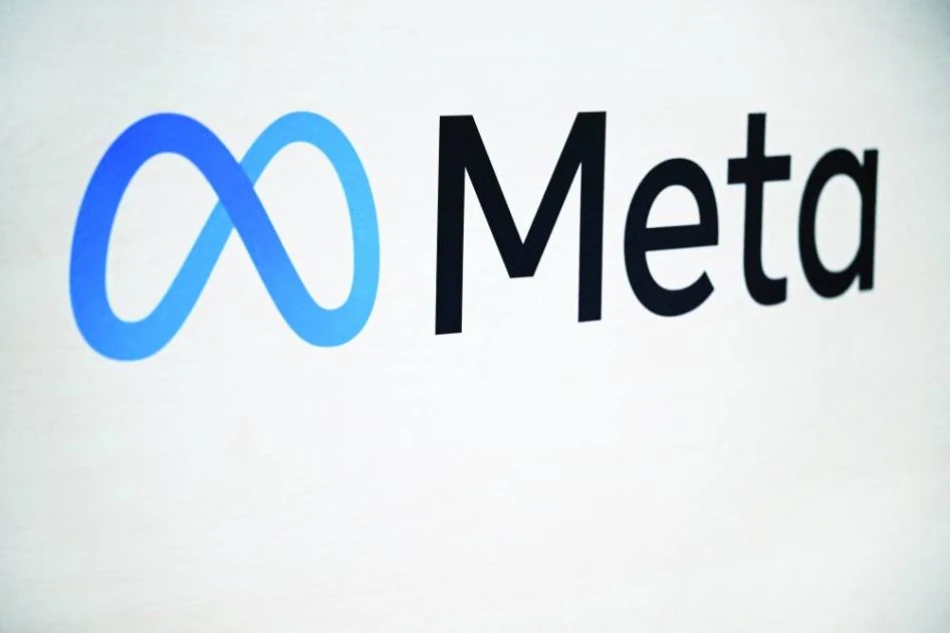
Meta Enters the AI Arena: Challenging Apple and Google's AI Dominance?
Meta's Billion-User Advantage Could Make It AI's Dark Horse Winner
While Apple and Google dominate headlines in the race for AI supremacy, Meta quietly commands something its rivals can only dream of: direct access to 3.4 billion active users across Facebook, Instagram, and WhatsApp. This massive distribution network, combined with unprecedented personal data insights, positions the social media giant as a potential kingmaker in the battle for AI-powered personal assistants—despite lacking the operating system control that gives competitors a structural edge.
The Data Goldmine That Powers Meta's AI Ambitions
Meta's transformation from social media company to AI powerhouse centers on one critical asset: behavioral data. Unlike the technical specifications or search queries that fuel other AI systems, Meta possesses real-time social interactions, personal communications, and lifestyle patterns from billions of users worldwide.
"Exclusive data is one of the most important assets when developing AI products or services, but not all data is equal in value," explains Claire Bouffier, co-head of global innovation at Lyxor Asset Management. "Meta has social communication and posting data—the most private and current information in the world about billions of users' behavior."
This advantage becomes clearer when considering how people actually use Meta's platforms. WhatsApp handles intimate family conversations, Instagram captures lifestyle aspirations and daily moments, while Facebook remains a repository for personal milestones and social connections. This creates an AI training dataset that's both massive in scale and deeply personal in nature.
Strategic Pivot: From Advertising Engine to AI Platform
Meta's June 2023 launch of "Meta Superintelligence Labs" signals a fundamental shift in corporate strategy. While the company continues leveraging AI for advertising optimization—its primary revenue driver—the introduction of "Meta AI" chatbot integration across WhatsApp and Instagram represents a bold move into consumer-facing AI services.
This pivot mirrors similar transformations we've seen across tech giants. Microsoft's integration of ChatGPT into Bing and Office, Google's Bard deployment across Search and Workspace, and Apple's upcoming AI features in iOS all follow the same playbook: embed AI capabilities directly into existing user workflows rather than launching standalone products.
Meta's approach, however, leverages social context in ways competitors cannot match. An AI assistant that understands your social connections, communication patterns, and shared interests could deliver more relevant and personalized responses than one limited to device-level data or search history.
The Operating System Problem: Meta's Achilles' Heel
Despite its data advantages, Meta faces a structural disadvantage that could prove decisive. Unlike Apple (iOS), Google (Android), or Microsoft (Windows), Meta lacks control over the operating system layer where users interact with their devices daily.
This limitation becomes critical as AI assistants evolve toward proactive, context-aware helpers that anticipate user needs. Apple's upcoming AI features will integrate seamlessly with iPhone functions, while Google's Gemini already accesses Android system data. Meta's AI, by contrast, remains confined to its own apps, unable to help with device settings, calendar management, or cross-app workflows.
The operating system advantage also extends to data collection. While Meta knows what users share socially, Apple and Google observe how users actually behave across all digital activities—from app usage patterns to location data to purchase decisions.
The Metaverse Bet: Building a Platform to Challenge iOS and Android
Meta's 2021 corporate rebrand and massive investment in virtual reality technology—despite Reality Labs posting multi-billion dollar losses—makes more strategic sense viewed through an AI lens. The metaverse represents CEO Mark Zuckerberg's attempt to create a Meta-controlled computing platform that bypasses Apple and Google's ecosystem dominance.
If successful, VR headsets could become the next computing platform, similar to how smartphones displaced PCs. Meta's early investment in VR hardware and software development positions the company to control both the operating system and the primary AI interface in this potential future.
This strategy echoes Amazon's approach with Alexa and Echo devices—create new hardware categories where your AI assistant becomes the default interface. While Amazon's smart speaker bet has shown mixed commercial results, it demonstrated how companies can circumvent traditional platform gatekeepers.
Market Implications: The Race for AI Distribution
For investors and industry observers, Meta's AI strategy highlights a crucial shift in competitive dynamics. The question is no longer simply about which company builds the most capable AI models—it's about which can most effectively distribute AI capabilities to end users.
Meta's user base provides immediate distribution at unprecedented scale. Unlike ChatGPT, which requires users to visit a separate website or download a new app, Meta AI integrates into communication tools people already use dozens of times daily. This "ambient" AI deployment could drive faster adoption than standalone AI applications.
The financial implications are significant. If Meta successfully monetizes its AI capabilities—whether through enhanced advertising targeting, premium AI features, or new subscription services—its massive user base could generate revenue per user that rivals or exceeds traditional AI service providers.
The Personal AI Battleground
Meta's AI ambitions ultimately center on a fundamental question reshaping the technology industry: who will control the interface between humans and artificial intelligence? While technical capabilities matter, distribution advantages and user relationships may prove more decisive.
Meta's combination of behavioral data, global reach, and social context creates a unique value proposition in the AI landscape. Whether this translates into sustained competitive advantage depends largely on the company's ability to overcome its operating system limitations and deliver AI experiences that feel genuinely useful rather than intrusive.
The stakes extend beyond corporate competition to questions of digital sovereignty and user privacy. As AI assistants become more capable and pervasive, the companies controlling these systems will wield unprecedented influence over information access, decision-making, and social interaction. Meta's bid to join this exclusive club represents one of the most significant strategic pivots in modern technology history.
Most Viewed News

 Omar Rahman
Omar Rahman






